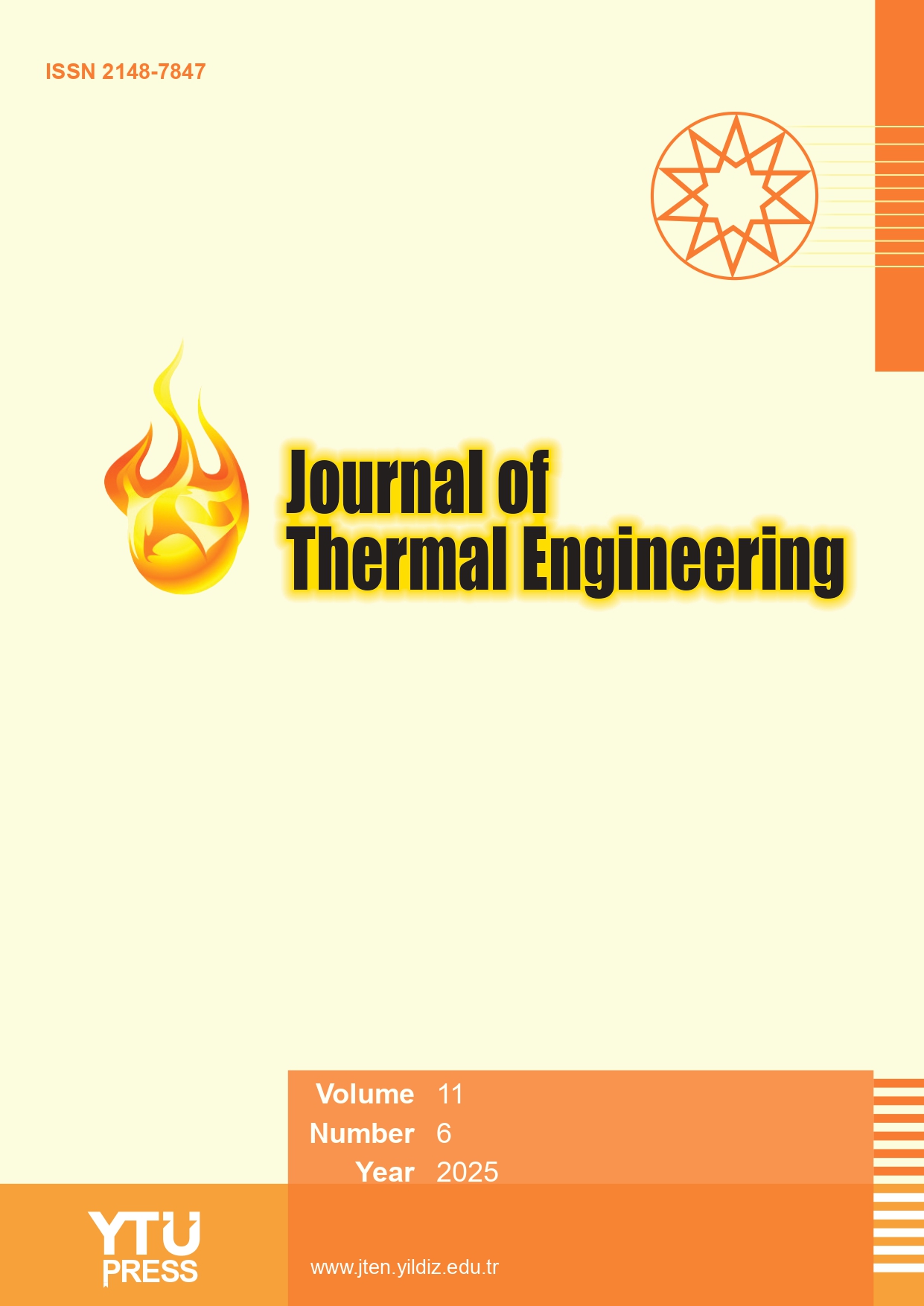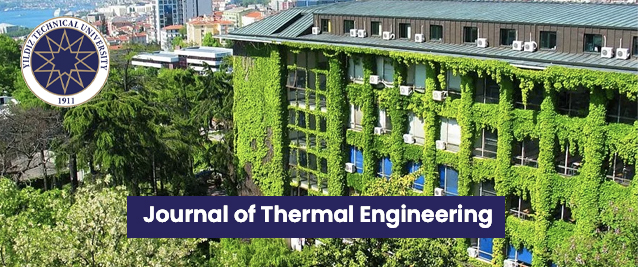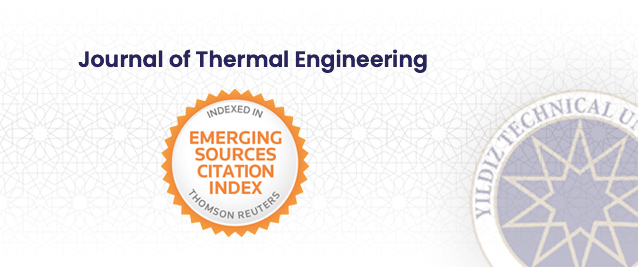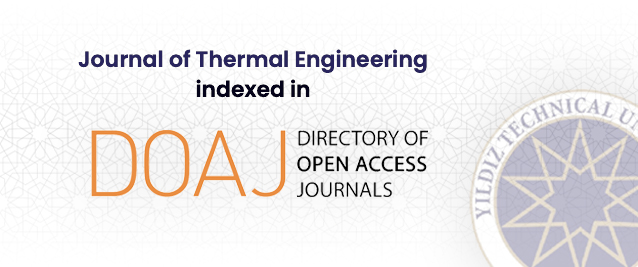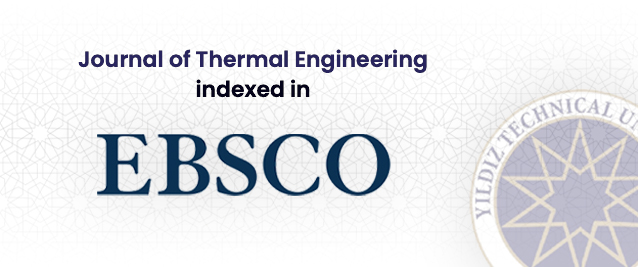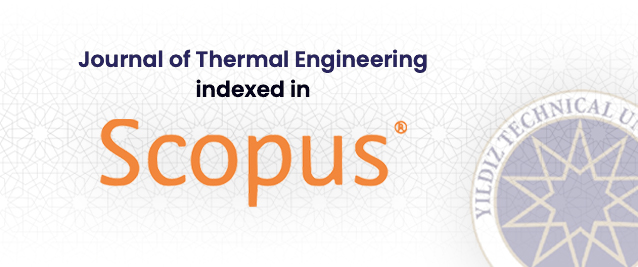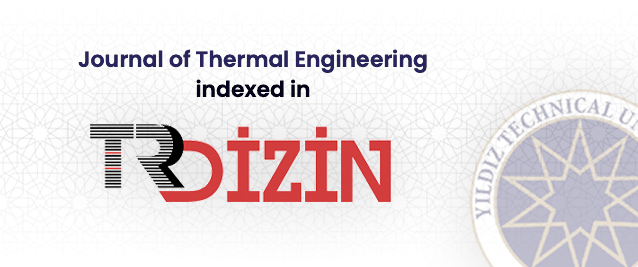Abstract
In this study, a new cascaded absorption-adsorption refrigeration cycle (ABS-ADS) is investigated under a variety of various operating conditions. Combined both absorption and adsorption refrigeration cycles can increase the overall energy performance. The condenser of the ABS cycle is cooled down by the evaporator of the ADS cycle. In this way, low-temperature cooling at low-grade heat source temperatures may be provided, and the benefit of each cycle can be utilized. Additionally, a comparison is also made between the performance of the proposed ABS-ADS and that of the standalone ABS and ADS cycles, as well as with other studies taken from the literature. Results demonstrated that, at heat source temperatures of 75oC, the cooling capacity of the proposed cascade ABS-ADS (25.5 kW) is greater than that of ABS and ADS by 16.8 and 177% with 0.644, 0.69, and 0.36 systems COP, respectively. In addition, it is superior to that of the ABS and ADS by 8.39% and 44%, respectively. The influence of mass flowrate of the heat source is high in the range lower than 1.0 kg/s; however, when the mass flowrate is more than 1.0 kg/s, the impact on the cooling effect and the COP is only marginal. When the flow rate of the solution pump is increased from 0.06 to 0.16 kg/s, the cooling capacity grows linearly from 16 to 44 kW, and the COP increases from 0.61 to 0.63. Increasing the temperature of the chilled water from 8 to 16oC raises the cooling capacity linearly from 20.6-36 kW and the COP from 0.58 to 0.622. In conclusion, the performance of the suggested cascade ABS-ADS cycle can operate effectively at low-grade heat sources and produce good thermal performance in comparison to other former studies.


